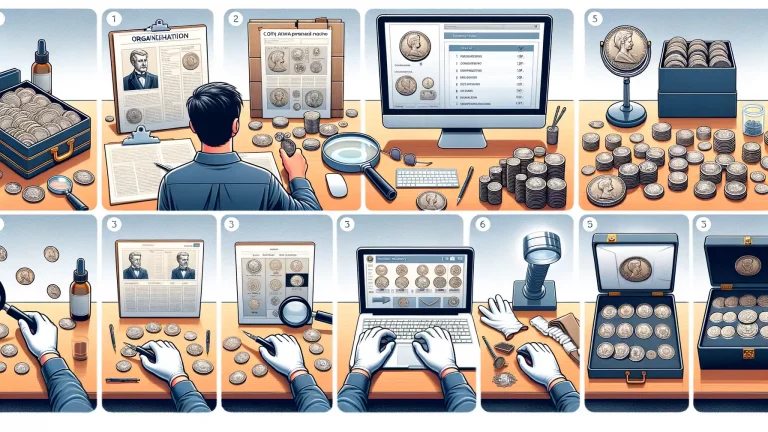Why Coin Appraisal is Important
Unlocking the Hidden Stories in Your Coins
Imagine holding a coin that has traveled through centuries, passing from hand to hand, each one leaving behind invisible traces of history. A coin appraisal isn’t just about finding out what your treasures are worth—it’s about uncovering those hidden stories, too. Without an appraisal, you might never know if that dusty coin in your drawer is an everyday penny or a rare gem worth millions!
A professional appraisal is like a magnifying glass for your collection. It helps you answer pressing questions:
- Is this coin genuinely rare or just old?
- How does its condition impact its value?
- What market trends could affect its worth today?
Whether you’re looking to sell, insure, or pass your collection down to the next generation, a coin appraisal ensures you have accurate information at your fingertips.
Avoid Costly Mistakes
Did you know that many collectors unknowingly undervalue their coins? Imagine accidentally parting with a *1922 no D Lincoln cent*—a rare error coin—at face value, simply because you didn’t know its true worth. For example, one appraiser might notice minuscule details, like a mint mark or die crack, that can add thousands to a coin’s value. These are details only an expert pair of eyes can spot.
So, whether you’re chasing historical thrills or financial gains, a thorough appraisal is the compass guiding your way forward. Ignoring it would be like leaving a treasure map unopened—who knows what wonders you might miss?
Steps to Prepare for a Coin Appraisal
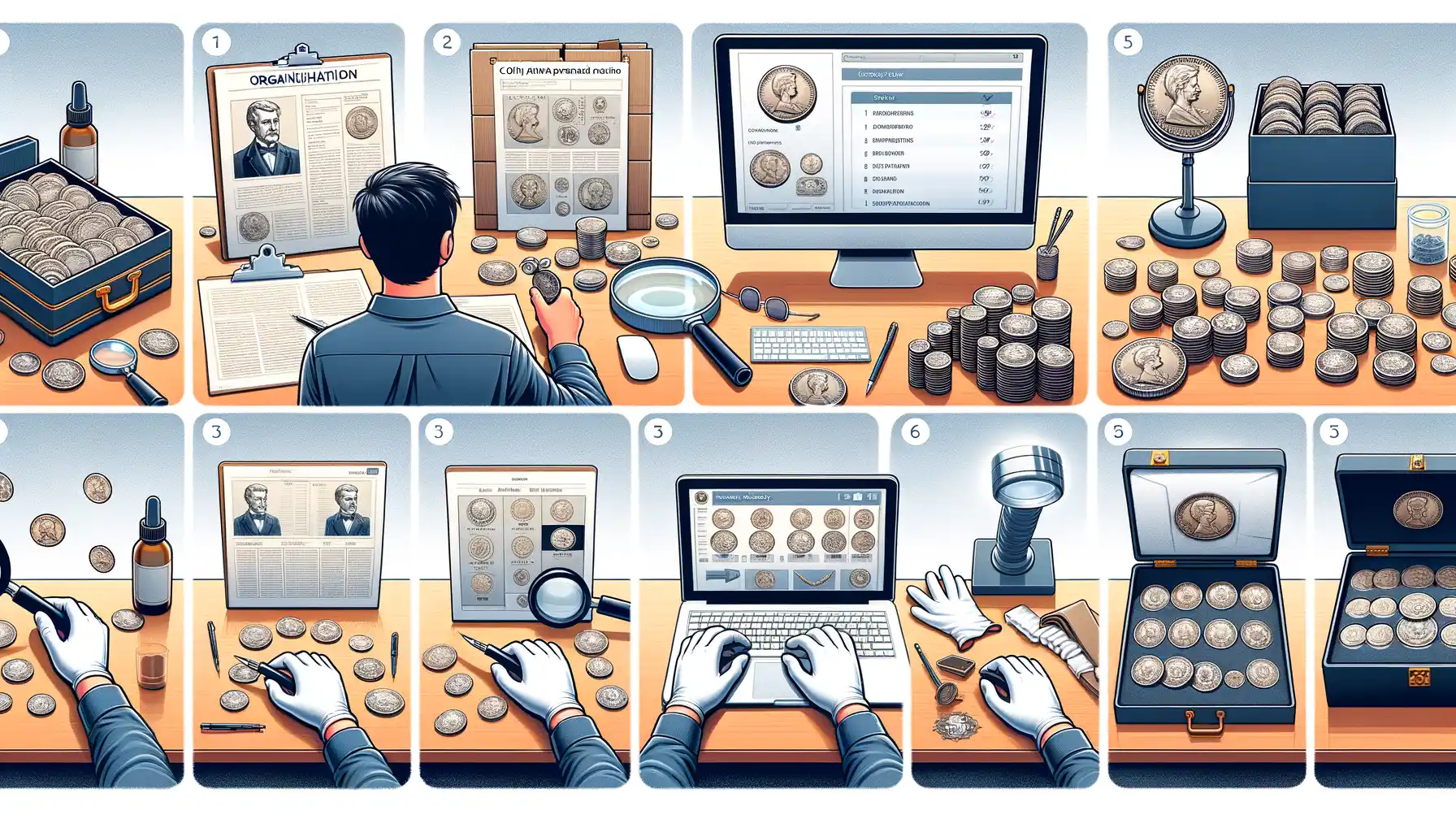
Why the Prep Work Matters
Imagine walking into a coin appraisal like heading to a first date — unprepared, unsure, and fumbling through your pockets. Yikes, right? That’s why getting your coins ready beforehand is absolutely essential. Not only does it help the appraiser assess your collection more accurately, but it can also save you time and possibly increase your coins’ perceived value. You’d never present a dusty family heirloom without shining it up; treat your coins with the same respect!
How to Get Your Coins Appraisal-Ready
Getting started isn’t rocket science, but following these steps can make all the difference:
- Organize your collection: Sort coins by type, denomination, or year. This keeps things clear for both you and the appraiser. Tossing them all in a bag? That’s a big no-go.
- Handle with care: Use gloves or hold your coins by the edges to avoid smudging. Fingerprints might seem harmless, but they can devalue rare pieces.
- Store properly: Place coins in individual holders or sleeves. Presentation matters—no one wants to rummage through a loose pile!
- Bring documentation: If you have proof of purchase, certificates of authenticity, or prior appraisals, pack it up. Think of it as your coin’s résumé.
A little preparation goes a long way. Treat your coins like treasures, because that’s exactly what they are!
Where to Find Reliable Coin Appraisers
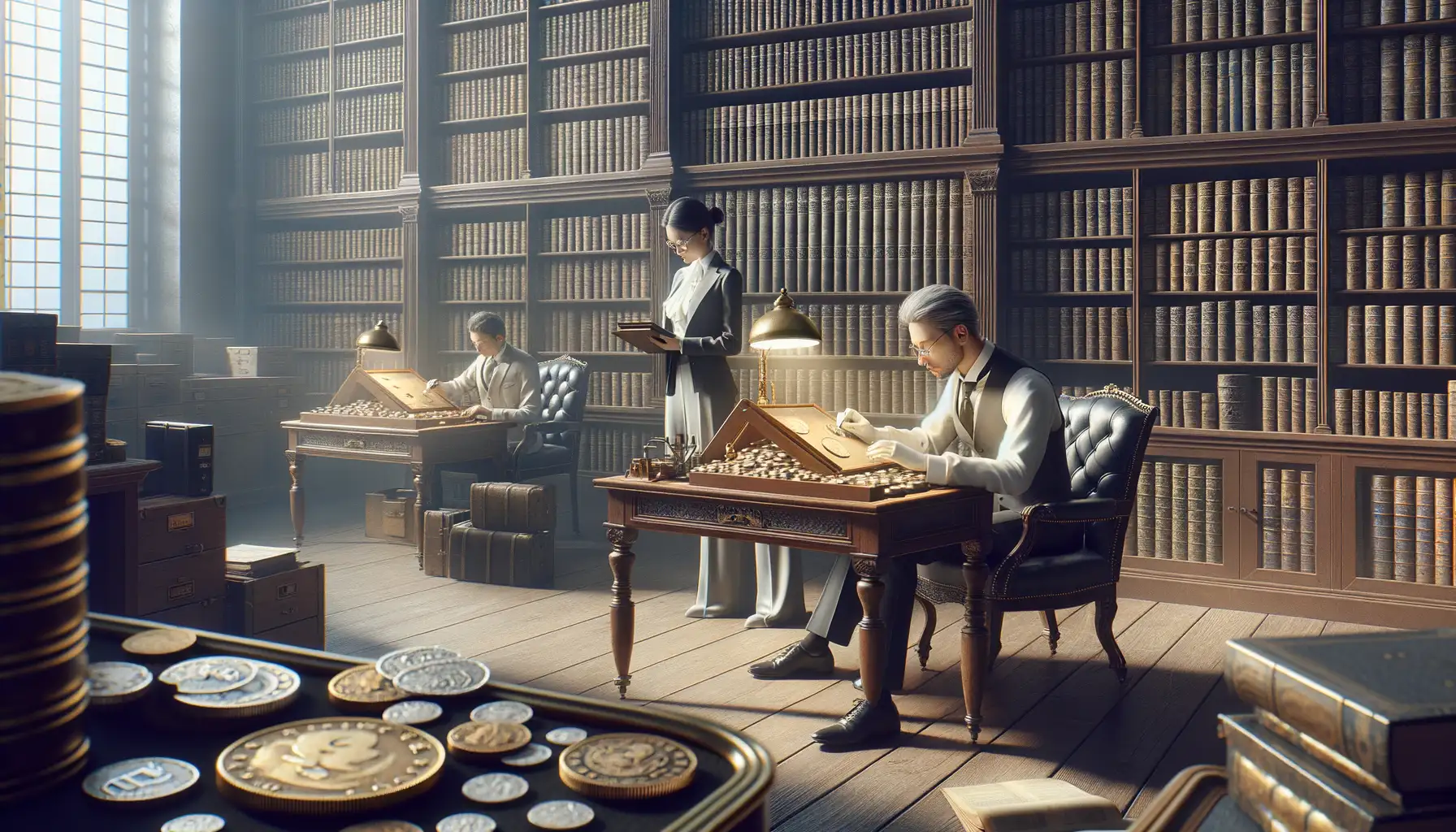
Trusted Experts in Your Neighborhood
Finding a reliable coin appraiser is like discovering a gem in your own backyard—you need someone who sees the same sparkle in your coins that you do. Start local! Many cities have reputable coin shops or dealers who specialize in appraisals. Walk in, feel the atmosphere, and don’t shy away from asking questions. A trustworthy appraiser will make you feel like a partner in the process, not just another customer.
Consider visiting numismatic clubs or associations in your area. These groups are often buzzing with experts who are passionate about coins and happy to share their knowledge. It’s a secret treasure trove of insight that many collectors overlook!
Online Options that Shine
If local options feel scarce, the internet opens up a world of possibilities. Look for:
- Professional organizations like the American Numismatic Association (ANA), which offer directories of certified appraisers.
- Top-rated marketplaces with appraisal services, such as Heritage Auctions or PCGS.
- Specialist forums where collectors recommend appraisers they trust.
Remember, a little research goes a long way. Read reviews, ask for certifications, and always check credentials before sending off your treasures.
Factors That Affect the Value of Coins
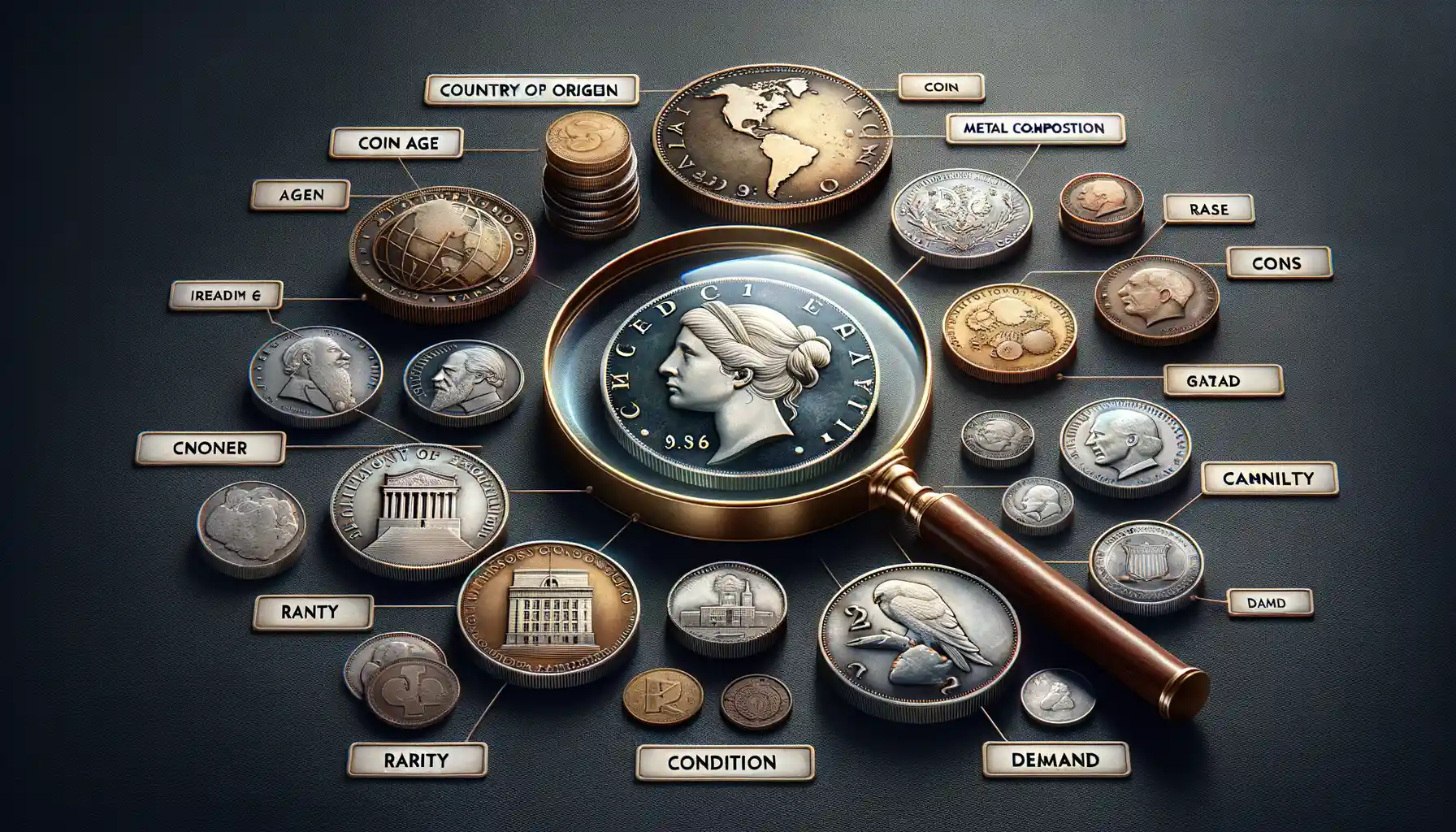
What Makes One Coin Worth More Than Another?
Understanding the value of a coin can feel like piecing together a fascinating puzzle. Why does one small, seemingly ordinary dime fetch thousands at auction, while another gathers dust in your pocket? It turns out, several key factors come into play:
- Rarity: Coins that were minted in small quantities or struck as special editions tend to hold more value. Think of them as the unicorns of the coin world—rarely seen and highly sought after.
- Condition: A coin’s state can make or break its worth. Collectors often swoon over coins with minimal wear, vibrant luster, and sharp details. Scratches? Chips? They’re like coffee stains on an antique book—hard to overlook.
- Demand: Popular coins create bidding wars. For example, if everyone suddenly wants a 1909-S VDB Lincoln cent, its value skyrockets faster than a trending meme.
Historical and Intrinsic Appeal
The story behind a coin can hold incredible weight. Does it come from a shipwreck? A now-defunct empire? The drama tied to its origin can transform it into much more than just metal. Don’t forget intrinsic value: coins made of precious metals like gold or silver carry worth even beyond collectibility. Medieval gold coins, for instance, are like holding tiny treasures that blend history and wealth together seamlessly.
It’s fascinating, isn’t it? That such small objects can carry so much mystery and meaning.
Tips for Maximizing Your Coin Appraisal Experience
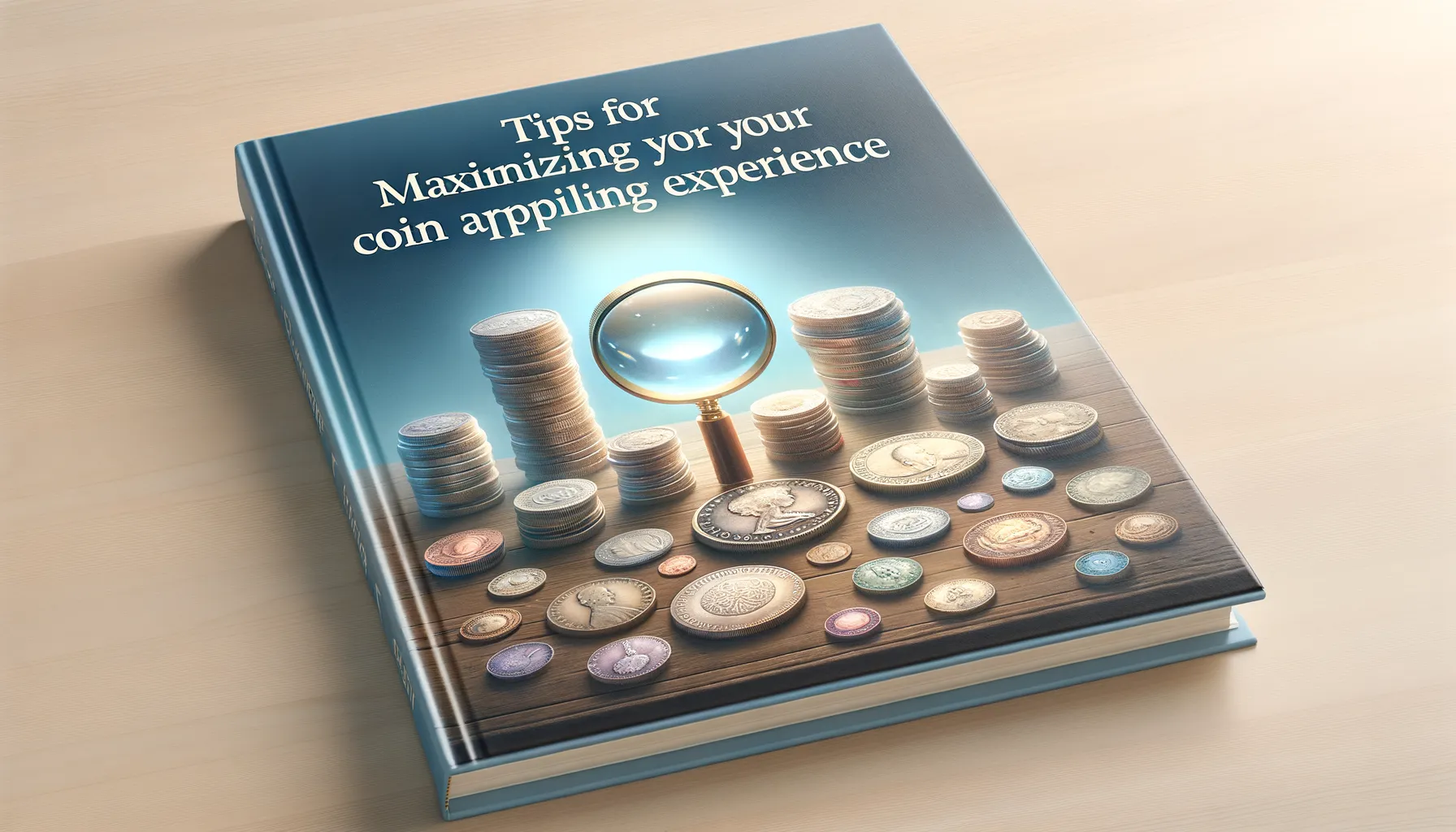
Be Prepared Like a Pro
Walking into a coin appraisal unprepared is like showing up to a potluck with an empty bowl—it’s just not going to cut it! Before heading out, make sure you’ve done a little groundwork. Start by organizing your coins. Place them in a protective holder or folder, and avoid handling them with bare fingers—your skin’s oils could damage their surface. If a coin’s history is known (perhaps it was passed down from Grandpa George), jot that down too. Appraisers love stories!
Want to truly impress? *Do a bit of research*. While you don’t need a PhD in numismatics, understanding basic terms like “mint mark” or “proof coin” will make the conversation flow smoothly.
- Sort your coins by type, year, or condition for easy inspection.
- Bring any documentation you have—certificates, receipts, or old appraisal notes.
Know the Magic Words
When you’re face-to-face with the appraiser, think of it as a mutual exchange of knowledge. Ask plenty of questions! What’s driving the value of your coin? Rarity? Condition? That mysterious double-strike error? Dropping terms like these shows you care and builds rapport. And don’t forget: every coin has its quirks. A small scratch might seem insignificant to your eyes, but it could be a dealbreaker for collectors. Understanding these nuances straight from the expert is half the fun—and all the value.

